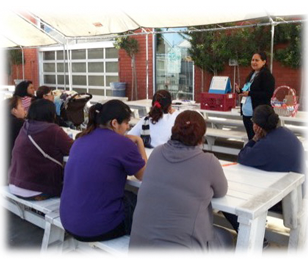Other Key Principles
| < Back | Next > |
|---|
 The American Public Health Association has identified a few overarching principles as important in advocating for expanded roles for CHWs:
The American Public Health Association has identified a few overarching principles as important in advocating for expanded roles for CHWs:

- Include CHWs in the development of policies that affect them
- Minimize barriers of language, education level, citizenship status, and life experience
- Encourage contracting with community-based organizations for CHWs’ services
- Incorporate the full range of CHW roles into positions
For more information, visit the following link: http://www.apha.org/policies-and-advocacy/public-health-policy-statements/policy-database.
